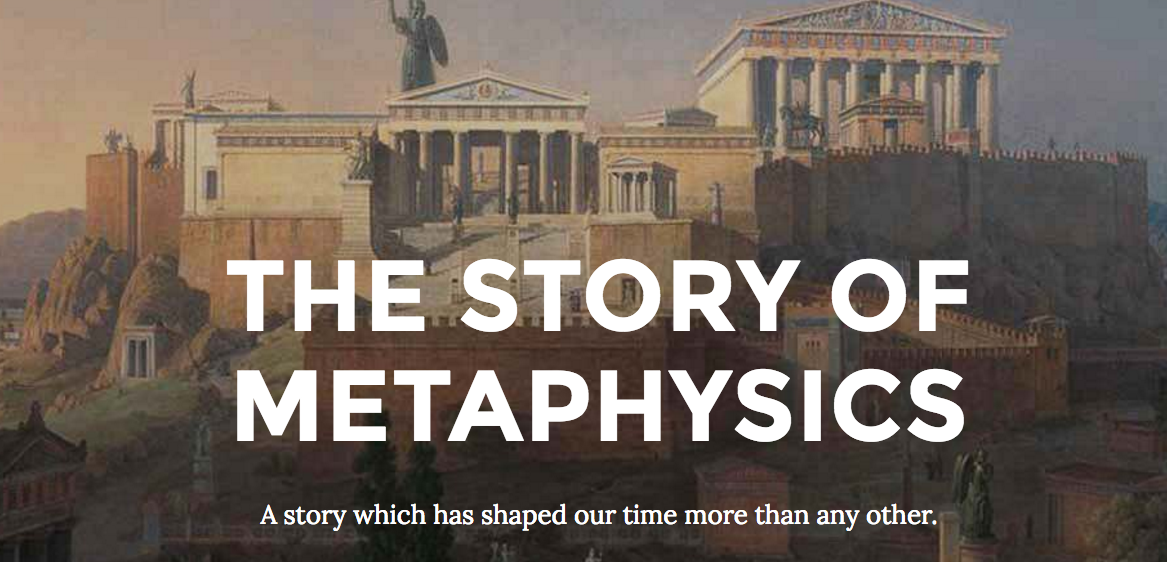After failing high school - disillusioned with the meaning of life - David drifted until he was introduced to the Metaphysics of Quality. He now spends his time living the philosophy and hopefully demonstrating to others its greatness!

The moral struggles of now!
‘The MOQ provides beautiful clarity to the evil behind the fascist inclinations of Donald Trump as well as the media culture and neoliberal policies which helped create him.’
It’s evolutionarily immoral to incite fear when there are better, higher, intellectual, rational alternatives.
Fear is a biological emotion. Historically it’s created in response to a perceived biological threat. It’s immoral to overindulge in this emotion when there are higher, intellectual morals which can be created. If the fear incited is not supported by facts then an intellectual case has not been made. This is true of those creating fear as well as those responding unnecessarily to it.
When the media or our political class create or propagate stories whose end result is unnecessary fear; this is immoral.
When people voluntarily seek out media or individuals whose end result is an irrational and biological response; then this is immoral.
What the MOQ makes uniquely clear to us is that these are choices in the realm of morality and the choices made are immoral!
But people aren’t naturally inclined to do the wrong thing. There’s forces at play making them more likely to do so. First and foremost, people are struggling and they don’t want their situation to deteriorate any further. The neoliberal policies that are mostly to blame for the struggles have created disadvantage amongst the poor and the working class. It is this same class who are generally less educated and therefore less inclined to seek intellectual answers to their dire situation. This makes them prime for exploitation with irrational fears.
The media, whose final goal is to gain advertisers and make money, finds an audience with a fearful and undereducated populace. Stories which incite fear create short-term ad revenue. They are ran regardless of the risk they pose, or lack of long-term value they provide for the audience.
Furthermore, a political candidate who is out for personal gain can exploit this same media induced irrational fear. This fear of illegal immigrants, Muslims and African Americans is exploited by providing an assuring authoritarian alternative.
One of the most revealing things about Trump is that the greatest predictor for his supporters is how high they score in authoritarianism. This makes sense. If you’re afraid and unable to fully understand why you're struggling, then a strong social authority figure would indeed be appealing.
But such an appeal to social authority in the face of false threats and contrary intellectual facts is immoral, and in fact, lays the foundations of fascism. The scapegoating of other cultures and banning of media outlets only adds to Trump's anti-intellectual social fascism. This is unprecedented in American politics and poses a unique threat to the country.
On the other side, Hillary Clinton, as the Democrats neoliberal alternative will only provide further struggle to an already struggling working class. More free trade agreements will only create further joblessness and unemployment. At least in Hillary's case, there isn't the immoral fascist leanings of a Trump presidency.
What’s clear is that regardless of who is in power these struggles will only continue. They will continue until there are policies which return manufacturing jobs back to the United States or large re-education programs designed to bring the unemployed into service jobs of the 21st Century. Donald Trump apparently has such policies outlined, and has been able to use these policies to help gain further support. I just hope it doesn’t take a candidate with fascist inclinations for them to happen.

New Website - The Story of Metaphysics
To finally complete the web trilogy - today marks the launch of The Story Of Metaphysics. The website is very much a prequel and delves into the history of metaphysics and how our current metaphysics was shaped. It should provide further context for the need of a new Metaphysics which takes what's good about our current one and improves on it.
Love to hear your thoughts and feedback! Please share..

The Logical Correctness of Fair Trade
When money is the driver of a corporation's behaviour - creating goods in the most economical way possible makes sense.
Not all goods are created equal however and while the cheapest manufacture process for a corporation may be valuable - there are workers rights to consider as well. It's no coincidence that the cheapest places to manufacture are those which have the loosest labour laws. Looking after workers costs money.
And therein lies the problem of modern day neoliberal policies. Simply put, neoliberalism supports the use of foreign countries to manufacture goods whose low prices exist, in part, because of substandard conditions.
And conversely, this is the problem that Fair Trade companies solve. They respect all levels of the individual and don't treat them as just expendable pieces of biological meat. Fair trade rules dictate policies such as reasonable working hours, a livable wage, health insurance, along with sick and personal leave. All designed to improve biological quality, provide equal social dignity, and give time away from work for the individual to grow.
That's what makes fair trade goods better than their non fair trade counterparts. They're supported by many of the codes of the MOQ. From 'the law of the jungle' in that they improve the health of their workers, 'The Law' in that they respect the workers right to not be abused, and finally the Code Of Art by providing downtime and space for growth.
That's why being on the right side of these codes is what makes, when possible, buying fair or locally made goods moral and supported by the MOQ.
The Morality of Veganism
Human behavior creating global warming is metaphysically immoral and veganism is a moral solution.
In the previous post we established that not changing our behavior in response global warming is immoral. In line with this, according to a report by two World Bank advisers the animal agriculture industry surprisingly contributes to around fifty-one percent of all global emissions. From this study we can conclude that consuming less meat would dramatically reduce our harmful impact on the planet. But why haven’t we heard of this before?
To answer this, the video above shows some of the statistics found in a documentary called Cowspiracy, and it explores why this might not be as well a known cause as the direct burning of fossil fuels. Reasons provided are the reluctance of charities to confront the public about such a large change in behavior, and the power of the animal agriculture industry in stamping out dissent.
But in addition to morally valuing biological life on earth by not suffocating it with inorganic CO2 there is another benefit of not consuming animal meat. This benefit is the correct valuing of biologically more evolved animals over that of their less evolved counterparts – plants and grains. As Robert Pirsig writes in Lila:
An evolutionary morality,.. would say [eating meat is] scientifically immoral for everyone because animals are at a higher level of evolution, that is, more Dynamic, than are grains and fruits and vegetables.. It would add, also, that this moral principle holds only where there is an abundance of grains and fruits and vegetables. It would be immoral for Hindus not to eat their cows in a time of famine, since they would then be killing human beings in favor of a lower organism.
Robert Pirsig
Thirdly, that’s not to mention the growing list of health benefits that can be found in reducing the amount of meat in your diet and improving the overall biological quality of the people on the planet.
Therefore these three key reasons make veganism moral on many levels and supported by the evolutionary hierarchy of the Metaphysics of Quality.

The Evil of Disregarding Climate Science
The MOQ is a beautiful intellectual framework. As an intellectual framework, it uniquely shows that it’s both immoral and illogical to not change our behaviour in response to global warming. Traditionally, the argument to change our behaviour goes something like this:
“We are running a dangerous experiment to see how much CO2 we can pump into our atmosphere. At its worst, global warming threatens the existence of mankind. The right thing to do is to heed the dire warnings of climate scientists. They speak of rising water levels and increasing global temperatures. With these increasing temperatures and rising water levels, mankind may be no longer able to survive. So we should, we must change our behaviour.”
This argument has many opponents however. From those in power who like things the way they are to those co-opted by power with bogus arguments about the validity of the science.
That’s because, without the MOQ, climate change opponents and even proponents are easily able to question the validity of truth and scientific fact. They are also easily able to immorally question the content of those facts for their own monetary gain.
With the MOQ however, we can make the argument for change much stronger. With it – the issue of climate change becomes not only a matter of fact but as a matter of quality. It does this by showing that not only is it moral to change our behaviour, but it’s evil not to. An MOQ argument for changing our behaviour follows:
“If we don’t value the biological quality of the life in our oceans and allow inorganic particles of CO2 to fill our planet. Then allowing this lower level to subsume the higher level is immoral. If we allow the social values of money and power to trump the intellectual truths of scientists explaining the threat. Then this is immoral. The threat of CO2 winning in the fight against life on earth is very dire. Biological quality is necessary for the social and intellectual quality of human beings to exist. Without it, the existence of these two levels is at risk. The moral thing to do then is to act to no longer allow CO2 to win its fight against biological quality. The moral thing to do is to follow what makes sense intellectually and not succumb to social greed. The moral thing to do is to change our behaviour in response to Global Warming.”
This is the unique thing about the MOQ. With the MOQ we can reject excuses of cultural relativism or scepticism about the existence of truth. We can call out paid arguments for the non-existence of global warming as the evil that they are. And we can logically say that responding to global warming is moral. This is true not just for some people in some such a place and time, but for all people -everywhere. And that’s very powerful.





